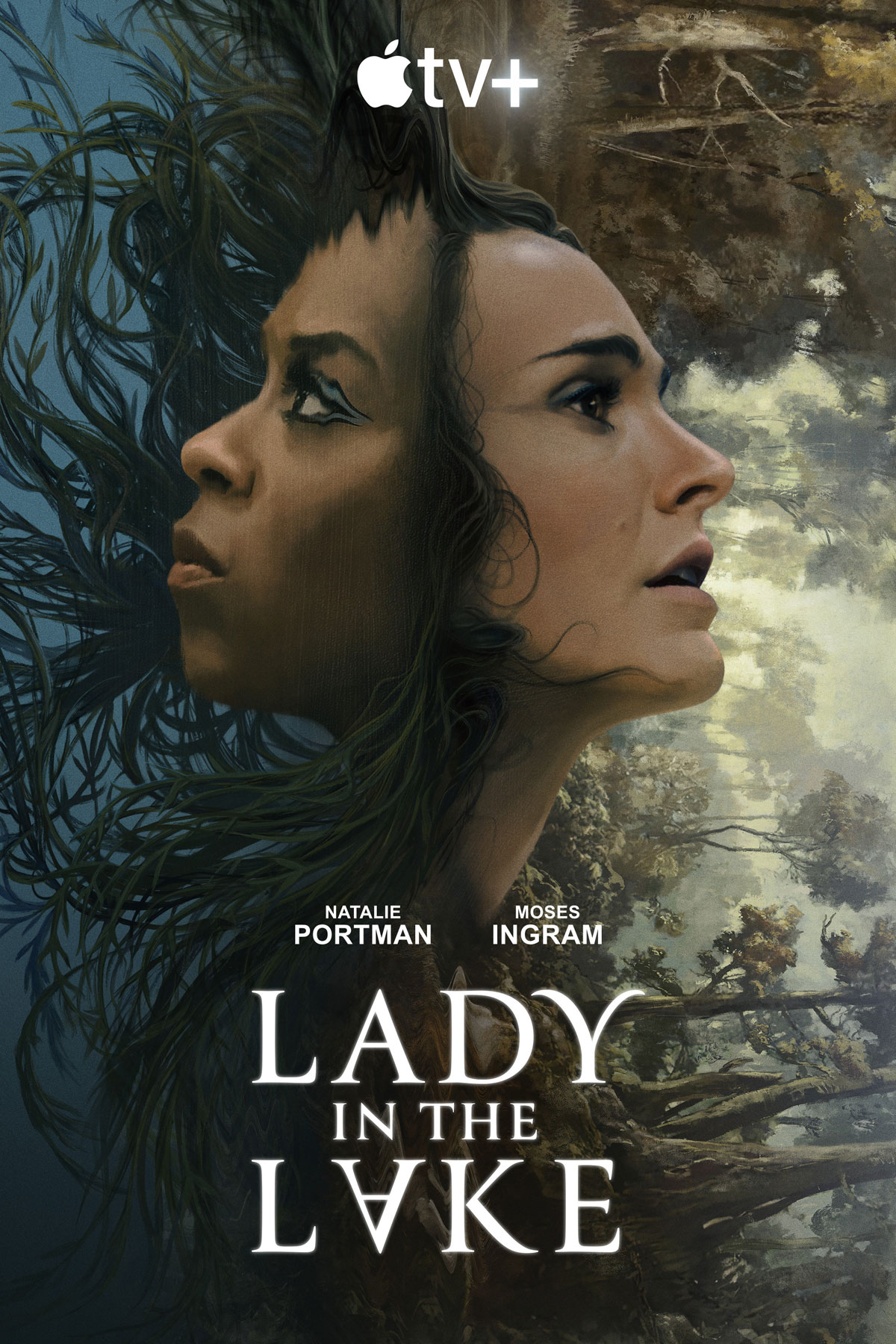
Service: Apple TV+
Creator: Alma Har’el
Series Year: 2024
Watch: Apple TV+
I wasn’t so sold on Lady in the Lake based on the trailer. It felt like another one of these period dramas that are like a jewel box, with the 1960s outfits and the era’s gender politics and all the stuff that comes with shows like Lessons in Chemistry, The Queen’s Gambit and Mrs. Maisel. I don’t know, I’m just kind of tired of that time. That look. The hats and the cars. The drab colors and quiet rooms. The staid nature of the whole thing. It’s just that there doesn’t seem to be a new societal story in all of it. That time is set in amber and we get, looking back at it from 2024, that things were rough for women and black folks and pretty much anyone who wasn’t a white, Christian man. And everyone wants to comment on all of this, but hasn’t really figured out a new and interesting way to do it. So, perhaps, we should just stick to the story and skip the societal stuff at this juncture?
But, alas, we cannot. In fact, this series is almost all about the societal ills of 1960s Baltimore. The murder mystery becomes a secondary concern. But all that 1960s is front and center. Oh goody. I think the issue I had with the series is that Alma Har’el couldn’t seem to decide if she wanted to make a show about society and culture, or a taught tale about the murder of a young Jewish girl and a young black woman that are seemingly unconnected, but really may be. And, in the end, she split the baby and made neither a particularly interesting tale about historical injustice, nor a very compelling crime drama. In fact, the second piece is completely undermined by a feint that lets all of the air out of the balloon. Because maybe the resolution of the murder of the lady in the lake wasn’t the point, after all.
But we start at the beginning. There’s a parade in downtown Baltimore, crowded with people. An Jewish family walks amongst the revelers, the young daughter wandering away after seeing a tropical fish store. We see her go in, meet a sketchy store worker and she vanishes. Her disappearance is all over the news and the Jewish community bands together to find her. Including housewife, Maddie Schwartz (Natalie Portman). She gets really into it. Because maybe she once wrote something for her high school paper? Or maybe just doesn’t like her overbearing, nebbish of a husband, Milton (Brett Gelman)? It’s a little unclear, honestly, why she’s gets so hyped up about the search. And is equally confusing to both her husband and her son (Noah Jupe). And it seems like just a bored homemaker playing sleuth until she actually finds the girl’s body floating on the banks of the lake. A coincidence and odd fact that goes completely unexplained. I mean luck is a thing, but the show just seems to shrug at it.
Meanwhile, Maddie has decided that that article she once wrote for her school paper and the fact she luckily found this girl’s corpse means she needs to abandon her family and try to become a professional reporter. Which is… just wacky. And, even wackier, her hail Mary works. Because magical thinking and unrealistic plotting. In her new capacity as a professional reporter she uncovers a much less popularized story about a dead black woman found in the same lake where she found the girl. Did we mention that after moving out of her house in the ‘burbs she naively moves into Baltimore’s black neighborhood thinking it’ll be just fine? Anyway, her character is not only clueless, but also not particularly sympathetic. She’s kind of a selfish asshole. And, yes, we know she was put upon by her husband. And maybe he wasn’t her first choice in a man. But her son begs her to come home. Asks why she’s doing what she’s doing. And she has very little empathy for her poor child and is basically like “Nah, I’m going to pass on the whole parenting thing, mommy needs to start an affair with this sexy police officer and pursue my completely unrealistic career while using my sexiness to manipulate said police officer and pretty much everyone else who will serve my end goal of being a famous reporter away from my dumb, unsexy husband and child whom I’ve been lying to about his parentage for his whole life.” While just generally being an example of a multitude of male characters we’ve seen over the years who are either having a mid-life crisis or are portrayed as complete shitheels.
So Maddie is our perspective character. But then there’s the whole narrative involving this woman, Cleo Johnson (Moses Ingram). She is our actual narrator. She does this kind of voice-from-the-beyond thing. Because she… she is the lady in the lake. But she talks to Maddie in this voiceover that I think it’s supposed to be artsy and a little surreal. But it’s honestly confusing. Is she talking from heaven? Like through a giant megaphone? I think it’s supposed to represent her voice in Maddie’s head feeding her the clues to her murder? But when you actually listen to what she’s saying, it’s not that at all. It’s all kind of nonsense. But we ultimately see Cleo and her involvement with the local gangster, her family life and what leads to her demise. It’s all very convoluted. Which, it turns out, is probably on purpose, as the writers try to hide the ball for the big twist. They don’t hide it so well. But even the reveal fizzles. Because the basic point the thing is trying to make is that privilege is real and dreams can come true! Okay that second thing is b.s., but we are all incredibly aware that the murder of a young white girl is going to get a lot more ink in America — even in 2024 — than the murder of a black woman. We don’t need a historical drama to learn that lesson. And I’m not sure we’re supposed to be shocked by the fact, but there just doesn’t seem to be a whole lot to glean beyond that.
Alright, then, let’s pretend this isn’t about that. And that this is just supposed to be a story and we can leave it at that. Fine. Even with that, Har’el takes some artistic license in some of the scenes, and especially some of the flashbacks, that both Ms. Hipster and I found confusing. In particular flashback scenes around Maddie’s, uh, relationship with the missing girl’s father. And, oddly, the missing girl’s grandfather. It is also sometimes unclear what scene is happening at what point in time. Natalie Portman is 43 and she looks amazing. But just changing her hair a tiny bit and sticking her in a scene where she’s maybe, possibly supposed to be a teenager and not really giving us context of exactly when it’s taking place? That’s a bit of a stretch. And then Har’el does these bizarro kind of, sort of dream sequences. Which are more like drug trips. It’s unclear if these are supposed to show us the unreality of Maddy’s brain, or if she was just like, “You know what would be cool right here? A full-hog Baz Luhrmann movie!” Yes, a Moulin Rouge bit should go right here in this drab-ass melodrama. It’s just weird and over-indulgent. The whole thing is over-wrought and characters’ core personalities do a lot of changing from scene to scene, which makes thing hard to track. And the end… well I think, where everyone ends up, the moral is that women should follow their dreams and make it happen — even if you have to leave your son (whom you kinda, sorta claim to love) behind. There’s some cool-looking stuff here and a kernel of interesting, but unfortunately it’s all wrapped in a muddled package.


